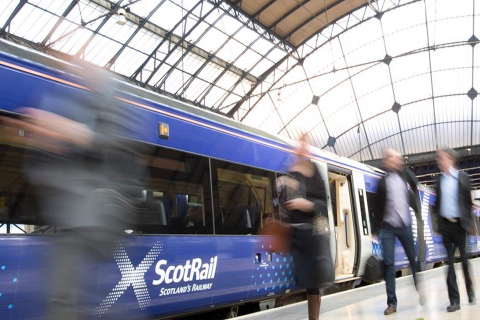UK rail strikes again last weekend as public indifference grows

The United Kingdom’s rail network faced another wave of crippling strikes as negotiations between railway unions and the employers remained at an impasse. In the face of a weary but indifferent public, the latest round of strikes left the passenger network in England without trains over the first weekend in September and disrupted travel for thousands of passengers. The ongoing dispute over pay, working conditions, and the controversial decision to close a significant number of station ticket offices continues.
Want to read more?
You have read all of your free premium articles for this month. Please become a subscriber to keep reading.
Subscribe now!
Take advantage of our exclusive offer to get full access to all premium content.





Penny Pinching, that’s all it comes down to. Sod the workers let’s line the pockets of the shareholders. Disgraceful
The sooner we get these low life self-serving tyrants out the better
The sooner we get these low-life self-serving tyrants out the better. They are running this country headlong into the ground while laughing in our faces.
So they want more money even after they were bailed out by the taxpayers during covid .yet as someone who had to regularly travel to work by trains that were dirty,over crowded often cancelled and frequently late ,I see no mention of wanting to improve the service, just punish their customers they need a pay CUT to reflect their truly abysmal service
Only once staff have been eliminated will the train system be (mostly) safe from strikes. This may not be fully achievable in the near future, but it is worth striving for – and a reduction in ticket offices that are now largely redundant is an obvious start.
The question is to what extent staff are necessary, which may need to consider the demographics in each location.
Bailed out!!? How exactly was the service bailed out? I’d rather have sat at home like the majority with 85% salary thanks very much. Ever asked yourself why they didn’t cancel the services and don’t quote me the need to get essential workers to work! It would have been cheaper to get every essential worker a taxi.
So it’s the platform staff, cleaners, guards, drivers fault for the poor service? People that have one wkd off in 3, that get up at 03:00 or clean up vomit on a sat night.
Well if ticket offices are unmanned, there will be nobody to go out on strike will there? Jobs are going to have to go in order to pay for any unfair wage demands.
There needs to be people of authority on the trains and stations to advise and assist passengers and enforce reservations etc. IE Train Guards and ticket staff.
It’s not just about pay. It’s about the RDG wanting to strip our terms and conditions. We already work unsocial hours and long weekends, dealing with all the ‘entitled’ muppets out on a Friday night piss up who are vile towards staff.
It’s about protecting our work life balance, or as mere workers aren’t we entitled to that?
Also, the average rail worker has no control over how clean the trains are, how crowded they are, whether they’re on time or not. That’s all down to shareholders.
Closing ticket offices and shedding train staff is an appalling plan, which would have a disproportionate effect on the old and the disabled. Many ticket machines are old, slow, hard to use and often out of service. Queueing for twenty minutes when there is no ticket office open is not a way to encourage people to use the over-priced and under-provided UK railway system.